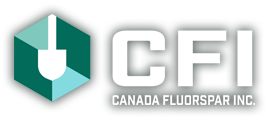
Recovery is affected by socioeconomic and social factors which involve family and community strengths and responsibilities. Community is the relationships and social networks that provide support, acceptance, friendship, love, respect, and hope. Purpose refers to daily meaningful activities, such as a job, home, school, volunteerism, family caretaking, or creative endeavors, and the independence, income, and resources to participate in the society.
Treatment for Addiction
Despite promising research, brain function affected by prolonged substance abuse may still result in behavioral consequences. As mentioned above, the road to recovery after a substance use disorder can be long and tenuous. However, for those dedicated to their journey, recovering from addiction is indeed possible.
- Relapse-prevention therapy and mind-body relaxation are commonly combined into mindfulness-based relapse prevention 30.
- Stages can occur one after the other, or they can be non-linear, with many returning to previous stages before reaching sobriety.
- The important thing is to take a look back to notice where you fell and what caused the stumble.
- This support is helpful and healthy, but it’s important to let them know you will only be supporting their recovery efforts – nothing else.
- The recovery community uses the acronym HALT (Hungry, Angry, Lonely, Tired) as a powerful reminder that these fundamental needs must be addressed to maintain sobriety.
Top 9 Strategies for Staying in Recovery
Additionally, we’ll help you understand why addictions are hard to overcome and how to plan for common problems that may pop up. During early recovery (the first year), the focus is on establishing abstinence, developing essential coping skills, and creating healthy daily routines. This period often brings the most dramatic changes but also significant challenges as you learn to steer life without substances. Taking that first step toward recovery can feel overwhelming, but you don’t have to walk this path alone.
- AUD can be mild (the presence of two to three symptoms), moderate (the presence of four to five symptoms), or severe (the presence of six or more symptoms).
- If you’re wondering how to move forward and create a life that feels balanced and meaningful, you’re in the right place.
- Become familiar with your triggers and avoid them early on in recovery.
- You might experience physical cravings, like a strong urge to use, and psychological cravings, such as thoughts about substances.
- Many of our patients work with therapists to create thought records, tracking triggers and practicing new responses in a safe environment before facing high-risk situations.
The Importance of Undergoing Treatment for Addiction
They remember their last relapse and they don’t want to repeat it. But their emotions and behaviors are setting them up for relapse down the road. Because clients are not consciously thinking about using during this stage, denial is a big part of emotional relapse.

Inpatient/Residential Treatment
In some cases, a severe incident, such as an overdose or drug-related death of a friend, can prompt a person to progress from this stage. Addiction recovery often occurs through five stages, which can vary in duration for each person. Stages can occur one after the other, or they can be non-linear, with many returning to previous stages before reaching sobriety. Each stage is important to the recovery marijuana addiction process, and it can be helpful to understand these stages to have the best chance of successfully navigating them. If you have addiction and you’d like to change your behavior, consider all the costs and benefits of the choices you could make.


Individuals are encouraged to be completely honest within their recovery circle. As clients feel more comfortable, they may choose to expand the size of their circle. Dealing with post-acute withdrawal how to recover from substance abuse is one of the tasks of the abstinence stage 1.
An Ongoing Process

They are caused by insufficient coping skills and/or inadequate planning, which are issues that can be fixed 8. Clients are encouraged to challenge their thinking by looking at past successes and acknowledging the strengths they bring to recovery 8. One of the important tasks of therapy is to help individuals redefine fun. Clinical experience has shown that when clients are under stress, they tend to glamorize their past use and think about it longingly. They start to think that recovery is hard work and addiction was fun. They begin to disqualify the positives they have gained through recovery.

Clinical experience shows that when clients feel they cannot be completely honest, it is a sign of emotional relapse. It is often said that recovering individuals are as sick as their secrets. One of the challenges of therapy is to help clients practice telling the truth and practice admitting when they have misspoken and quickly correcting it. The tasks of this stage can be summarized as improved physical and emotional self-care.
It can be utilized as a long-term therapy or a bridge to help people transition from active addiction to abstinence. Outpatient counseling can help people understand addiction, their triggers, and their reasons for using drugs. This form of treatment can be done at a doctor’s office or via telehealth appointment. Opioid use disorder (OUD) is defined as a problematic pattern of opioid use that causes significant impairment or distress. Substance use disorder (SUD) is defined as a problematic pattern of substance use leading to clinically significant impairment or distress. Education and awareness around the harm of using substances, along with the support of friends, parents, and caregivers, can help prevent SUDs.
Nevertheless, many treatment programs, including Alcoholics Anonymous, require a commitment to complete abstinence as a condition of admission. Only 1.0 percent of people receive substance abuse treatment as an inpatient or outpatient at a specialty facility. The single most popular path is the use of peer support groups in the community. Just as some people with diabetes or asthma may have flare-ups of their disease, a return to drinking can be seen as a temporary setback to full recovery and not as a failure. Seeking professional help can prevent a return to drinking—behavioral therapies can help people develop skills to avoid and overcome triggers, such as stress, that might lead to drinking.

